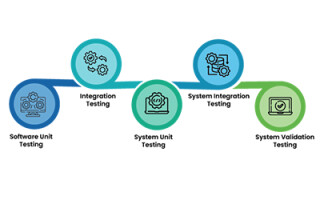How VPN Security Works and Why Use One for Safe Internet Connection
May 26, 2020
Story

Information security today is one of the main priorities within many organizations. This is especially true for enterprises whose ventures, in one way or another, are associated with data
Information security today is one of the main priorities within many organizations. This is especially true for enterprises whose ventures, in one way or another, are associated with data. With VPN, companies can protect their data on the Internet.
Information Security
Modern Internet technologies are changing the way businesses operate, as well as their attitude to ensuring data safety. Today, enterprise communication channels go far beyond office locations and applied technologies. Thus, a good security policy would now include detailed protocols on how to guarantee data protection.
So, what does information security mean? It presupposes, first of all, complete safety, as well as non-disclosure of the information that is in the possession of a company. This data may include:
· Personal details of employees and clients
· Accounting reports
· Methods of strategy and market promotion
· Modulation of economic development strategies
· Development of innovative technologies
All this confidential data, of course, should not be breached, modified, misused, deleted, or disclosed to third parties.
Protect Your Data via VPN
In the event of data loss, companies can face unpleasant consequences leading to various legal and marketing problems. Economic losses, as severe as complete bankruptcy, are also possible. It is logical to assume that cybersecurity and protection of data is a necessity for all companies that strive for successful functioning.
Initially, companies created VPNs in order to protect the privacy of their employees and corporate data, because the interception of information has been and remains one of the most common means of corporate espionage. Moreover, new ways of intercepting data on the Internet appear regularly. Security experts later discovered the KRACK, which was particularly vulnerable to WiFi networks. However, even before that, hackers already had programs for stealing information such as MAC spoofing, Firesheep, etc.
That is why IT engineers were tasked with creating software that would increase the level of security of Internet connections. As a result, they developed a security program that creates an encrypted connection between two devices.
VPN: Meaning and Purpose
VPN is software that establishes a virtual bridge between a user and a server. This is more commonly called a VPN tunnel because it ensures the safety of the data passing through it. Moreover, the data is encrypted between the VPN client and server using a strong cipher.
The user device establishes an encrypted connection with the VPN server, after which information will be transmitted inside this channel. Intercepting and modifying such traffic does not make sense for hackers: all data is encrypted and cannot be read or modified. Although data encryption if the main purpose of using VPN services, it is also used to anonymize the user (hiding the location, IP address, etc.) and bypass blocking access to Internet resources.
Companies use VPN to connect different local networks which are located in various locations. This allows remote employees and other proxies to access corporate network resources. VPN technology is required for:
· Connection of several offices, geographically located in different places, into one secure private network
· Providing access to corporate data for remote employees and customers
· Scaling the existing local network in connection with the growth of the company
· Ensuring data security while employees are working from home during COVID-19.
For the latter purpose, a company can deploy a corporate VPN solution or encourage employees to use a portable LTE modem that has a built-in VPN functionality.
How VPN Works
These are a few typical examples of using VPN connections for companies:
1. Site-to-site: suitable for connecting entire departments of companies separated by different routers, it can be offices located in geographically different points, or offices in the same building, but not combined into one local network.
2. Peer-to-peer: connecting two separate computers using different means, for instance, connecting one or more devices to a virtual network, while none of them has a dedicated static public IP-address.
3. Remote access VPN: connecting a separate computer to the internal network.
4. Dynamic tunnel: a VPN server is configured, and clients connect to it via the Internet at its IP-address and get into the enterprise network with possible differentiation of their access from this network to the enterprise resources.
To select the most suitable method for using the VPN channel, you need to first find out the needs, for which it will be used. The best way to find the most suitable method for your company is to carry out an audit.
As a result, you will receive an uninterrupted and secure type of connection for your offices, separated by different routers or geographically. Also, you will be able to provide access for remote employees and other proxies (for example, clients who need to provide access to your company's resources).
The modern growth of cybercrime requires paying special attention to the safety of data. All sensitive information that gets on the Internet can be protected with the help of a VPN. Primarily, it ensures the protection of personal and corporate data from theft and unauthorized use.
About the Author
Victoria Melnychuk is a content creator who is passionate about influencing business audiences. She is fond of AI, IoT, Machine Learning, Blockchain, and other game-changing technologies.




